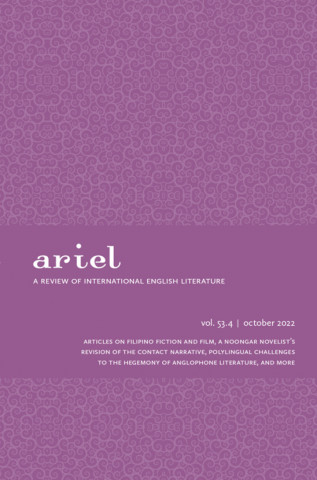“…in the extremity of an impotent despair” : “Whatever Singularity”, Postcolonial Ab-Use, and Erik Matti’s On The Job
Keywords:
Agamben, cinema, biopolitics, American colonialism, Spanish colonialism, PhilippinesAbstract
Broadly conceived, this essay is an inquiry into how concepts with a European provenance may be productively utilized as tools for analysis in the postcolony without reproducing the epistemic violence characteristic of colonial discourse. More specifically, this essay examines the key ideas of Giorgio Agamben, a philosopher repeatedly accused of insufficiently addressing the role of empire in the shaping of history, to determine how his political ontology might be conscripted to understand the biopolitical logic of postcolonial states. We subject Agamben’s ideas to what Gayatri Spivak refers to as ab-use by placing them in a staged confrontation with a postcolonial text that we suggest represents an unthought limit of his philosophy and which we therefore argue could stand as its generative dialectical antithesis. We argue that On the Job (2013), a cinematic text about prisoners who serve as government agents, is perdurably marked by the Philippines’s history of multiple colonizations that dramatizes the limits of Agamben’s philosophy. We examine the discourse of religion and benevolent assimilation, emblematic of Spanish and American colonization of the Philippines respectively, which we claim are expressed metaphorically in the film in terms of sacrifice and cleanliness. We simultaneously suggest that this method of discrediting the universal address of Agamben’s thought clarifies its utility in the postcolony as it renders legible the unique form of biopower exerted by the Philippine post-colonial state.


